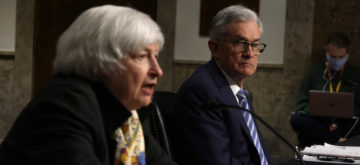
Tim Barker and J.W. Mason in Dissent:
Tim Barker: Why didn’t the 2008 crisis lead to the kind of changes that we’re seeing in 2020 and 2021?
J.W. Mason: The financial crisis was such a great time to be thinking about economics. It felt like we were on the verge of a new Keynesian revolution: someone would come galloping in with a new general theory, or maybe the old General Theory, and upend the economics profession. A few years later, it seemed like that was a fantasy, at least as far as the economics profession was concerned; we went back to the status quo very quickly. But perhaps the changes just took longer than we expected. A lot of conversations today are shaped by the Great Recession and its aftermath. There’s a very clear consensus, not just among people like us but in the broader economic policy world, that the response to the crisis of 2008 and 2009 was completely inadequate. If you talk to younger staff people on Capitol Hill, you’ll hear that the 2009 stimulus was much too small, that there was too much faith in the Fed, that we need to be much more ambitious today. The Obama administration’s premature turn away from stimulus and toward austerity is one of the great macroeconomic policy failures of our time, and I think that’s understood today in a way that it was not at the time. So maybe the lessons did get learned, just more slowly than we might have liked.
More here.
